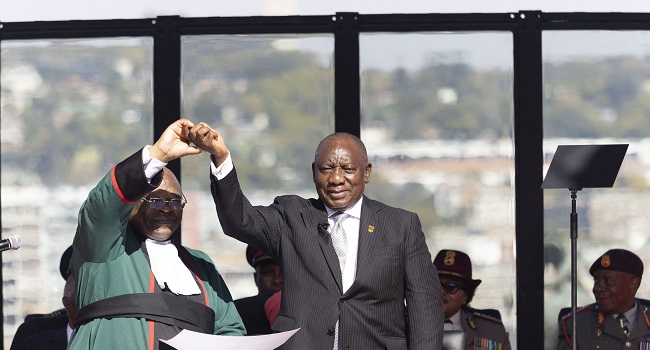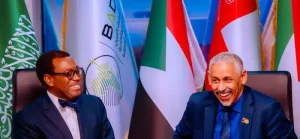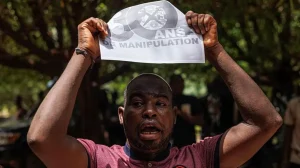
Cyril Ramaphosa was inaugurated for a second full term as President of South Africa on Wednesday, following a coalition agreement formed by his weakened African National Congress (ANC) after the recent general election.
The swearing-in ceremony, held at the Union Buildings in Pretoria, was led by Chief Justice Raymond Zondo and attended by lawmakers, foreign dignitaries, and a crowd of supporters. Notable attendees included Nigerian President Bola Ahmed Tinubu and several African leaders such as Angola’s Joao Lourenco, Congo Brazzaville’s Denis Sassou Nguesso, and King Mswati III of Eswatini.
“In the presence of everyone assembled here, and in full realisation of the high calling I assume as President… I, Matamela Cyril Ramaphosa, swear that I will be faithful to the Republic of South Africa,” Ramaphosa affirmed during the ceremony.
The inauguration was marked by a 21-gun salute, a flyover by army helicopters, and performances by dancers and musicians as attendees braved the chilly winter weather.
Ramaphosa’s re-election followed a contentious general election on May 29, which resulted in no clear winner. The ANC secured only 40% of the vote, a significant drop from its previous 57.5% five years earlier. This outcome forced the party into coalition talks to maintain a parliamentary majority.
The ANC has formed a coalition government with several parties, including the centre-right Democratic Alliance (DA), the Zulu nationalist Inkatha Freedom Party, the anti-immigration Patriotic Alliance, and the centre-left GOOD party.
Despite his promise of a “new dawn” for South Africa, Ramaphosa’s first term was plagued by economic difficulties, persistent power outages, high crime rates, and a rising unemployment rate, which now stands at 32.9%.
“The fight against tenure extension is not just about the state but the entire country, as allowing it in one state could lead to it being replicated nationwide,” Ramaphosa stated, highlighting the importance of democratic processes.
Ramaphosa’s coalition secured a comfortable victory in the National Assembly, with 283 out of 400 lawmakers voting to re-elect him. However, his presidency faces staunch opposition from leftist factions, including Julius Malema’s Economic Freedom Fighters and former President Jacob Zuma’s uMkhonto weSizwe (MK), who have criticized the coalition for including right-wing and free-market-oriented parties.








